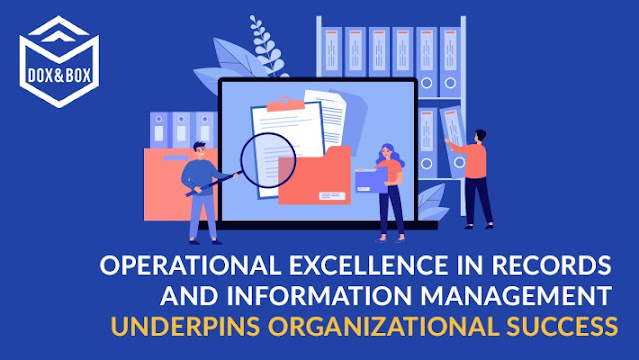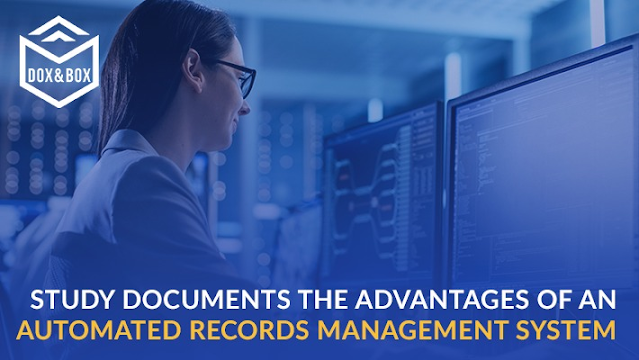Operational Excellence in Records and Information Management Underpins Organizational Success
This request isn't as strange as it may appear. It’s at the heart of effective operations. Your entire company's success as well as privacy is likely to be reliant on adequate records and information management.
In many organisations, the role of RIM is generally undervalued. Anyone who has worked in this position is familiar with the responsibilities, including filing and retrieving documents, monitoring record management software, and filling shred bins.
A tactical approach to record management in RIM ignores the notion that operational excellence in RIM minimises risk and allows for organisational adaptability. IDC believes that more total data will be created in the next three years than in the previous 30 years combined. The ability to quickly find information in response to demands from internal stakeholders, regulators, and litigators will increasingly differentiate the winners from the losers as the volume of data collected by businesses expands.
The following example exemplifies the necessity of operational excellence in record management and information management (RIM). Would you be able to promptly comply if your HR department called and asked you to obtain a confidentiality agreement with an employee who no longer works at the company and whose file was moved to storage seven years ago?
What is the definition of operational excellence?
● Operational excellence is more than just using lean and continuous improvement principles; it's a total culture shift. All employees are empowered and motivated to carry out the organization's plan most efficiently and cost-effectively possible.
● This continuous push for excellence is based on teamwork, problem-solving, and growth, focusing on improving processes and adding value to customers.
● We have highly qualified and capable employees who can address problems quickly and effectively, which is a major element of operational excellence. Strict processes and standard work must guide teams to produce consistent, high-quality results.
● At this level, teams are encouraged to find new methods to add value to the operation, whether through increased capacity, improved performance, or product and process innovation.
● A focused operational excellence programme that integrates people, processes, and performance is the only proven way to establish this internal competence. This begins with defining a clear strategy of what needs to be provided, then aligns an improvement programme to grow people and work methods (processes) to accomplish these goals.
● Operational excellence methods can bring speed to daily routines and value emergency planning and preparedness in times of disaster, such as during the coronavirus pandemic.
● This could include identifying and resolving major capacity and underlying cause constraints, implementing daily management systems quickly to enable visualisation and quick decision-making, and standardising procedures and routines to allow rapid replication and acceptance across the organisation. Above all, clear leadership and staff coaching are critical.
PROLIFERATION OF PERSONAL DATA PROTECTION
Regulatory pressures are increasing at the same time, particularly in the area of personally identifiable data. More than 80 countries have passed some form of privacy legislation, with more on the way. Organizations have one month to respond to an individual's request to remove personal information under the General Data Protection Regulation of the European Union. Consider the resources required to handle thousands of such requests, mainly if the data was gathered over time and in multiple formats. Records management software will also help in data protection as privacy is very important.
In record management and information, operational excellence entails much more than box labelling. It necessitates taking charge of the organization's information flow and management while remaining within regulatory bounds. Because a global firm is potentially subject to hundreds of regional, national, and municipal regulations, keeping up with legal changes alone can take up a full-time employee's time.
Not only does having RIM operational excellence protect your company from fines and litigation, but it also gives you a competitive advantage. When stakeholders have immediate access to supporting data, they make better decisions.
Operational efficiency improves when demands for information, such as a seven-year-old confidentiality agreement, can be rapidly met. Customers receive services that are more consistent and equitable.
Bottom Line
In other words, greatness in record management and information management software lays the groundwork for success in other areas of a company. Today, information is at the centre of practically everything a company does, making effective information management a part of every different strategy and goal.
Source: https://www.doxandbox.com/blog-details/operational-excellence-in-records-and-information-management-underpins-organizational-success



Comments
Post a Comment